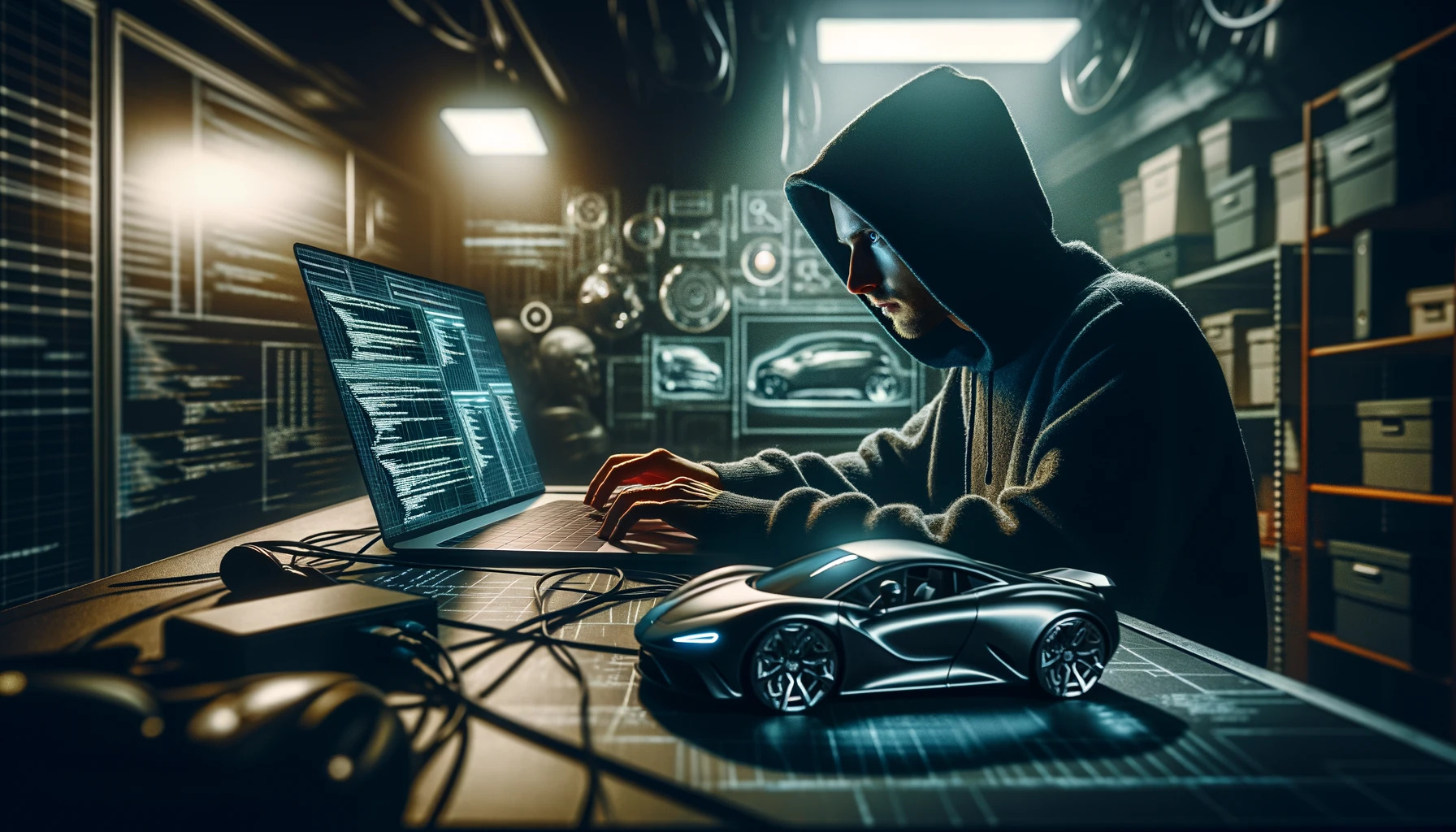In this era of rapid technological advancement, modern cars have become marvels of innovation, integrating cutting-edge electronics and connectivity features. However, this technological evolution comes with its own set of risks. As cars become more connected and reliant on digital systems, they also become increasingly vulnerable to hacking. This article delves into the various aspects of this pressing issue, exploring the reasons behind the vulnerability of modern cars to hacking and discussing potential solutions to mitigate these risks.
Understanding Modern Cars’ Vulnerability
Modern cars are essentially computers on wheels, equipped with sophisticated electronic control units (ECUs) that manage various functions such as engine performance, braking, and infotainment systems. These ECUs are interconnected through a network known as the Controller Area Network (CAN), allowing for seamless communication between different components of the vehicle.
Evolution of Automotive Technology
Over the years, automotive technology has undergone a dramatic transformation, evolving from purely mechanical systems to highly integrated electronic systems. While this technological revolution has brought about numerous benefits such as improved fuel efficiency and enhanced safety features, it has also introduced new vulnerabilities.
Exploiting Digital Interfaces
Hackers can exploit vulnerabilities in the digital interfaces of modern cars to gain unauthorized access and control over critical systems. By exploiting loopholes in software or leveraging insecure wireless connections, hackers can remotely manipulate various functions of the vehicle, posing serious safety and security risks.
Risks Associated with Car Hacking
The vulnerability of modern cars to hacking poses a myriad of risks, ranging from privacy breaches to life-threatening situations on the road. Some of the key risks associated with car hacking include:
Unauthorized Access
Hackers can gain unauthorized access to a vehicle’s systems, allowing them to tamper with crucial functions such as braking, steering, and acceleration. This unauthorized access can result in accidents and endanger the lives of both occupants and pedestrians.
Data Breaches
Modern cars store vast amounts of sensitive data, including personal information, navigation history, and vehicle telemetry. A successful cyber-attack can compromise this data, leading to privacy breaches and identity theft.
Remote Hijacking
One of the most concerning risks of car hacking is remote hijacking, where hackers take control of a vehicle’s systems from a distance. This scenario could potentially enable malicious actors to remotely steer a vehicle off the road or disable critical safety features, putting lives at risk.
Factors Contributing to Vulnerability
Several factors contribute to the vulnerability of modern cars to hacking, including:
Increasing Connectivity
The proliferation of connected car technologies such as Wi-Fi, Bluetooth, and cellular networks has significantly increased the attack surface for hackers. These connectivity features provide multiple entry points for cyber-attacks, making it easier for hackers to exploit vulnerabilities.
Complex Software Systems
Modern cars rely heavily on complex software systems to manage various functions, from engine control to entertainment systems. However, the complexity of these software systems also makes them more prone to bugs and security vulnerabilities, which can be exploited by hackers.
Lack of Security Standards
Unlike other industries such as banking and healthcare, the automotive industry lacks robust cybersecurity standards and regulations. This lack of oversight leaves car manufacturers and consumers vulnerable to cyber-attacks, as there are no mandatory requirements for implementing security measures in vehicles.
Addressing the Vulnerability
Addressing the vulnerability of modern cars to hacking requires a multi-faceted approach involving collaboration between car manufacturers, cybersecurity experts, and regulatory bodies. Some potential solutions include:
Regular Software Updates
Car manufacturers should regularly release software updates to patch known vulnerabilities and improve the security of their vehicles. These updates should be delivered over-the-air (OTA) to ensure that all vehicles receive timely security patches.
Encryption and Authentication
Implementing strong encryption and authentication mechanisms can help protect communication channels between different components of the vehicle. By encrypting sensitive data and implementing robust authentication protocols, manufacturers can reduce the risk of unauthorized access and tampering.
Security by Design
Incorporating security principles into the design phase of vehicle development is crucial for building resilient and secure systems. By adopting a security-by-design approach, manufacturers can identify and mitigate security risks early in the development process, reducing the likelihood of successful cyber-attacks.
FAQ’s
Car hacking incidents are relatively rare but are on the rise as vehicles become more connected and reliant on digital systems.
Can car hacking lead to accidents?
Yes, car hacking can potentially lead to accidents by enabling hackers to tamper with critical systems such as braking and steering.
Are older cars immune to hacking?
While older cars may have fewer digital features, they are not immune to hacking, as hackers can exploit vulnerabilities in any vehicle with electronic systems.
What can consumers do to protect their cars from hacking?
Consumers can take several steps to protect their cars from hacking, including keeping software up-to-date, using strong passwords, and avoiding connecting to unsecured Wi-Fi networks.
Is legislation in place to address car hacking?
While there is no specific legislation addressing car hacking, lawmakers are beginning to recognize the importance of cybersecurity in the automotive industry and are exploring regulatory measures to improve vehicle security.
Can car manufacturers be held liable for car hacking incidents?
The liability for car hacking incidents can vary depending on the circumstances, but car manufacturers may be held liable if they fail to implement reasonable security measures to protect their vehicles from cyber-attacks.
Conclusion
In conclusion, the vulnerability of modern cars to hacking poses significant challenges for the automotive industry and society as a whole. By understanding the risks associated with car hacking and implementing proactive security measures, we can work towards building safer and more secure vehicles for the future.
READ: Bandook RAT: New Variant of Bandook RAT Targets Window Users





Pingback: Hackers Target macOS with Ads Spreading Stealer Malware
Your comment is awaiting moderation.
Very interesting topic, appreciate it for putting up.